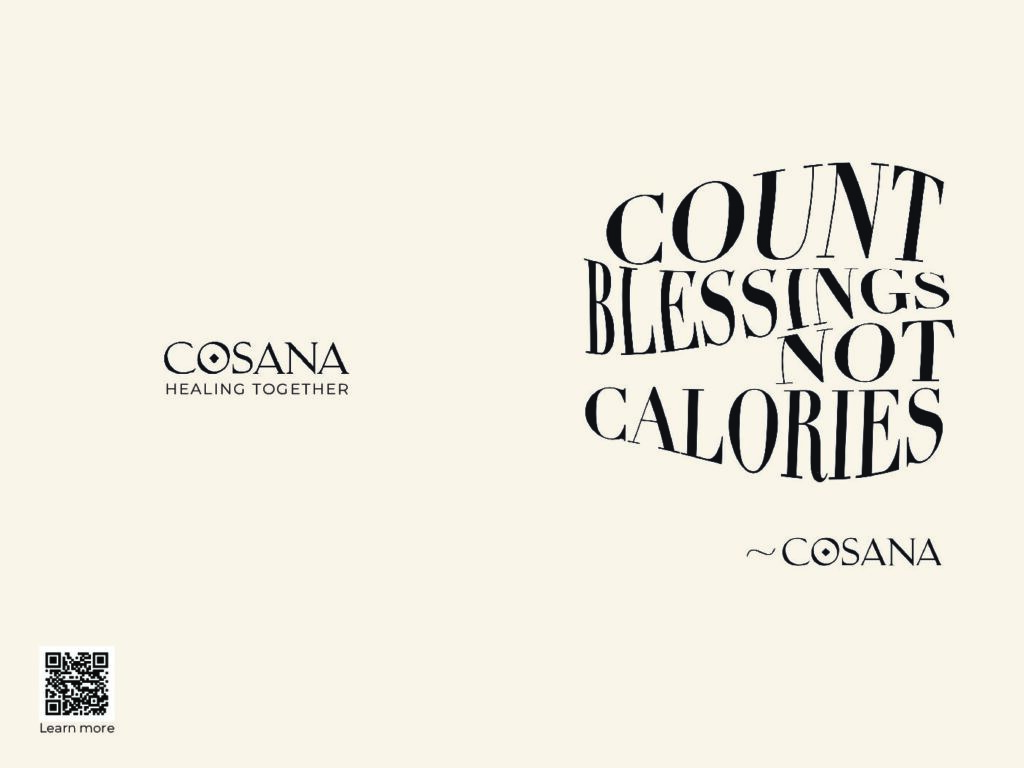4 Common Reasons We Overeat

Why Can’t I Stop Overeating?
While uncomfortable, “overeating” or eating beyond fullness is something many people experience on a regular basis and is nothing to be ashamed of. Understanding the factors that influence when and why you overeat can provide a buffer against emotions like guilt and shame. Connecting with these factors can also provide hints for what thoughts, actions, and habits need to be healed/changed to better support a satisfying relationship with food. Here are four common, science-backed reasons for overeating:
Undereating Causes a Hormonal Imbalance That Can Lead to Overeating
- Restricting food intake (even on accident) deprives your body of what it needs on a biological level and impacts your psychological response to food.
- When you under eat, your stomach releases more Ghrelin (the hunger hormone) to stimulate your appetite and signal to your brain that you need food. This intense hunger can cause you to eat quickly.
- When you eat too quickly, the fullness hormone Leptin does not have time to signal your brain that you are full, meaning you may eat more than what your body can process at a given time. Under eating/restricting also triggers “scarcity mindset,” your brain’s response to believing that food is in short supply. When you are presented with the opportunity to eat after a long period without food, you may eat more than feels good simply because your brain is afraid that your body will not be fed again.
Experiencing Stress Can Result in Overeating
- A 2021 Gallup survey found that 57% of adults in the US said they are stressed “a lot of the day” on a daily basis. 33% of adults who report overeating cite stress as the leading factor and say that it helps distract them from the anxiety and pressure they feel (APA, 2013). But this is not the only reason that stress causes overeating.
- Stress triggers the release of Cortisol and Adrenaline, the primary stress hormones. These hormones release glucose (sugar) into your bloodstream, resulting in a surge of energy in your body. High levels of glucose can increase your desire for foods high in sugar and fat.
- Studies have shown such comfort foods* actually do dampen stress-related emotions, but also contribute to overeating and food cravings. Stress also triggers fight-or-flight mode. This state inhibits functions nonessential to survival, like digestion. Even though digestion is inhibited, your appetite increases in response to levels of Cortisol (so you eat more).
- Stress also impacts sleep. Research has shown that sleep deprivation leads to suppression of leptin and increased levels of ghrelin (which also leads to overeating).
Overeating as a Form Emotional Regulation
- Sometimes we may choose to eat simply to soothe our emotions, even if we are not hungry. Emotions like boredom, sadness, rejection, hurt, anger, and even happiness can lead us to lean on food for comfort. When these emotions are really intense, we may eat more simply because it takes more food to alleviate the emotional sensation.
- On a subconscious level, the physical discomfort you feel after overeating can cover up or distract you from the emotional discomfort you originally felt. (Think of this as literally “stuffing your emotions down” by putting food on top of them).
- One study investigating the relationship between emotion regulation strategies and emotional eating found that participants who suppressed their emotions (instead of expressing them) ate more.
- Eating can also be so pleasurable. If your life is lacking in luster, eating may even be the best part of your day. When food is the best part of your day, you may continue eating beyond fullness because you want to prolong this pleasurable experience, even if after the fact, it does not feel so pleasurable.
Restrictive “Food Rules” Trigger Stress in the Brain and Lead to Overeating
- Food rules are beliefs about food that we have accumulated and cultivated over the years. They tend to be based on external information (such as a diet plan, calories, or rules that family members or friends abide by). While arbitrary, food rules dictate what you are allowed to eat, as well as what you “shouldn’t” eat. People often establish and adhere to food rules with the intention of manipulating their body size or controlling their weight. But science has proven that this tactic tends to backfire.
- Studies performed on rats show that depriving oneself of pleasurable foods triggers a stress response in the body, causing anxiety and withdrawal symptoms (NIH). The rats were given intermittent access to sugary foods. These cycles of being allowed to eat and not having access to the sugary food mimicked the cycle of food restriction (dieting) many humans put themselves through. Like humans, the rats responded to this deprivation by overeating the “forbidden” sugary foods when given the chance.
Demonstrate Self-Compassion to Cope with Overeating
Overeating clearly happens for a variety of reasons. Understanding the factors that influence when and why you overeat can make it easier to treat yourself with kindness in moments of physical and mental discomfort. Whatever the reason(s) may be, you never deserve to feel ashamed of your consumption. We all over do it sometimes! The trick is to not panic, ruminate, or belittle yourself when it happens. This just fuels the shame cycle and will leave you feeling even more unworthy, anxious, and out of control around food.
Self-compassion is the best remedy for coping with a full tummy. You can practice self-compassion by demonstrating warmth and understanding towards yourself, as well as reminding yourself of your own humanity. Here is an exercise to try after overeating.
EXERCISE: Using Self-Compassion to Cope with Fullness
After overeating, focus on soothing yourself. Lay flat on the floor, connect to your breath, close your eyes, and start talking to yourself as if you were talking to a small, wounded child. Think of affirmative and loving things to say. Here is an example dialogue for practicing self-compassion:
“Being human can be so uncomfortable. You’re doing such a great job of trying to take care of yourself. It’s okay if you don’t get it right every time. I trust you to figure this out. You have nothing to be ashamed of or fear. The discomfort will pass. I still love you and am here to support you.”
Sources:
- Magee, E. (2005, February 18). Your ‘Hunger hormones’. https://www.webMD.com/.
- Farrar, T. (2018, May 16). Your brain on malnutrition: Scarcity mindset. Eating Disorder Recovery for Adults. https://tabithafarrar.com/.
- Women’s Healthcare of Princeton. (n.d.). Hunger hormones. https://www.princetongyn.com.
- Harvard Health. (2021, February 15). Why stress causes people to overeat. https://www.health.harvard.edu/.
- Verywell Mind. (2019). The fight-or-Flight response prepares your body to take action. https://www.verywellmind.org/
- The New York Times. (2019, April 25). Americans are among the most stressed people in the world, poll finds. https://www.nytimes.com/.
- Gallup. (2021, June 15). State of the global workplace report. https://www.gallup.com/.
- Liu, J. (2021). U.S. workers are among the most stressed in the world, new Gallup report finds. CNBC. https://www.cnbc.com/.
- Evers, C., Stok, F. M., & De Ridder, D. T. (2010). Feeding your feelings: Emotion regulation strategies and emotional eating. SAGE Journals, 36(6). https://doi.org/10.1037/e524372011-025
- APA. (2013). Stress and eating. https://www.apa.org/.
- Mayo Clinic. (2021, July 8). Chronic stress puts your health at risk. https://www.mayoclinic.org/.
- Kim, T. W., Jeong, J., & Hong, S. (2015). The impact of sleep and circadian disturbance on hormones and metabolism. International Journal of Endocrinology, 2015, 1-9. https://doi.org/10.1155/2015/591729
- Wein, H. (2016, March 30). Restricting sugary food may lead to overeating. National Institutes of Health (NIH).
*You never need to feel guilty for choosing to comfort yourself with food. Nor do you need to feel bad about what foods you choose to comfort yourself with. No matter what the sugar, fat, carb content, and no matter what other “health”- oriented individuals say about a food, (i.e that it’s “toxic” or “inflammatory”) no food is “bad” food. You get to define your needs and decide how to fulfill them. Period.
Share this article



